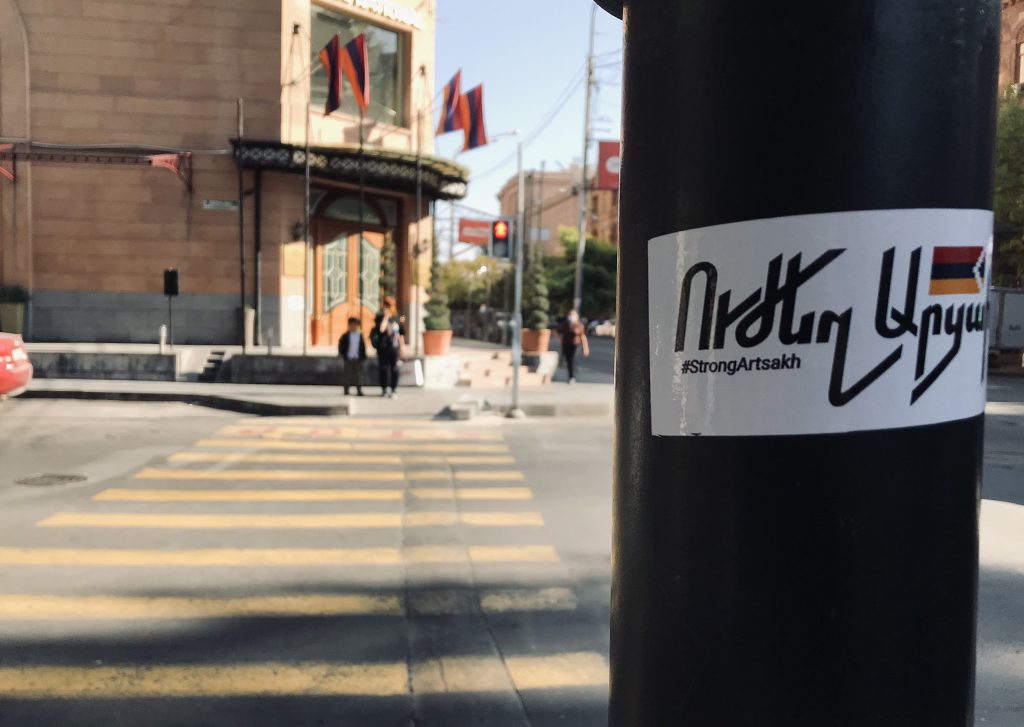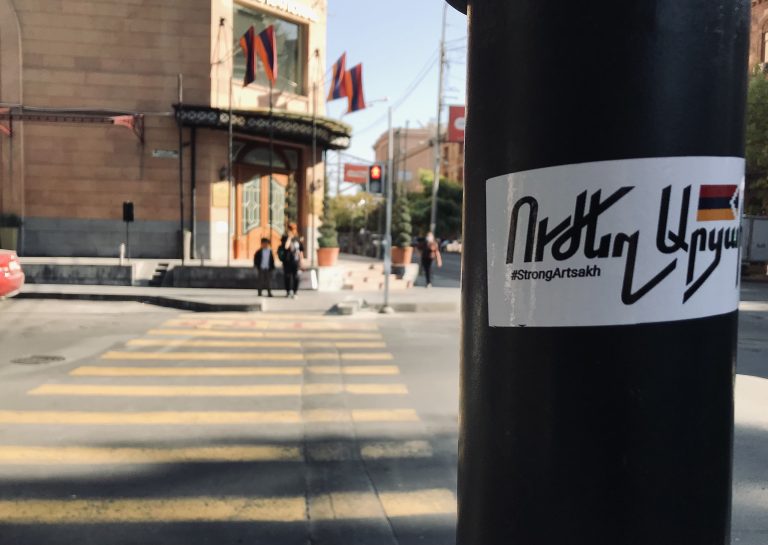By the end of September 2023, the ethnic cleansing of Armenians in Nagorno-Karabakh had rapidly faded from global media attention. The last of Karabakh's 120,000 Armenians have fled their ancestral homeland, leaving the less fortunate behind to face the prospect of a show trial in Baku, or worse, forced disappearance. Several Russian peacekeepers, including senior officers, were also killed during the attack by a barrage of “stray” bullets, leaving no survivors. Did Azerbaijan get rid of disturbing witnesses? Paco apologized easily; Moscow accepted. Russian military bloggers grumbled about “betrayal” through clenched teeth.
In fact, this was not the first time that Moscow enabled Azerbaijani forces to clear Armenian villages in Karabakh. In the fateful summer of 1991, Soviet paratroopers pursued Armenian rebels in the area, before Azerbaijani riot police expelled the local Armenian population. Mikhail Gorbachev appears to have hoped that Azerbaijan, then still Soviet, would support his modified version of the Soviet Union against the rebellious and increasingly pro-Western Armenians. From there until the collapse of Soviet power, it only took a few months.

Photo: Garik Avakian / Source: Wikimedia Commons
Stalin's logic
Any encyclopedia is clear about the facts: Armenia is the oldest Christian country and has its own church and alphabet. After officially adopting Christianity in 301 AD, Armenia played a major role in late antiquity. Saint Servatius, the patron saint of Maastricht, was Armenian. But as waves of migrant peoples invading the Roman Kingdom overwhelmed the Armenians, they became a residual minority – like the Celts, Basques, Egyptian Copts, or the defeated Greeks and Balkan Slavs.
With the advent of modernity, scholars became aware of the ancient lineage of these nations. And then came the dream of the state. However, the results turned on Western geopolitics, starting with the Greeks in the 1820s and ending with the Irish. In 1915, Armenians faced genocide under the disintegrating Ottoman Empire. Like many similar minorities amid the dissolution of the old order, Armenians were accused of being both capitalist exploiters and socialist revolutionaries. In short, pro-Western and ultra-modern.
Only a few fragments of the ancient Armenian homeland survived the massacre to find themselves parts of the newly formed Soviet Union after 1920. The largest piece became the Armenian Soviet Socialist Republic (SSR). The smaller part, called Nagorno (i.e. mountainous) Karabakh, was linked to the Azerbaijan SSR with its predominantly Muslim and Turkic-speaking population.
Stalin, as the Soviet Commissar for Nationalities, followed materialist logic. For him, racial hatred was a sign of backwardness. Baku, the newly established capital of Azerbaijan, was a major center for the oil industry and was referred to at the time as the “Chicago of the East.”
Indeed, Baku at the turn of the 20th century boasted a remarkable cosmopolitan atmosphere as modern Islamic elites switched to the Latin alphabet and established a republic even before Turkey. Azerbaijani teachers even dared to mock Islamic traditions in the illustrated magazine Mulla Nasr al-Dinwhich was widely read from British India to Morocco.
The thin class of Western Azerbaijanis perished in Stalin's purges in the 1930s. In their place were the likes of Heydar Aliyev, a disciple of NKVD chief Lavrenty Beria in the 1940s, and founder of the ruling dynasty in Baku since 1969.
The Aliyev family now seems determined to outdo Sacha Baron Cohen's cynical fantasies. President Ilham Aliyev awards the Heydar Aliyev Medal to his wife, Vice President Mehriban Aliyeva. They take selfies while wearing military uniforms, standing over occupied Armenian positions. Other Azerbaijani war heroes are rarely mentioned. Personal power does not allow for competition, even if it is openly loyal.
The conflict has been unfrozen
But it's the ugly details that make up the facade. History is made through the interplay of structure, agency, and contingency. The key is timing. Why has the conflict in Karabakh finally frozen now? What can we expect next?
The forgotten expectations of Gorbachev's perestroika system in the late 1980s were the promise of a more humane and rational world order, starting with the Soviet Union itself. These hopes have provided tremendous impetus to intellectuals, writers and scientists who, by definition, are the guardians of all that is rational and human. The administrative map, in which the Armenian SSR was separated by a narrow mountainous strip from the Armenian Autonomous Region of Karabakh, seemed illogical. But at the time it seemed irrelevant, because Azerbaijan and Armenia were just Soviet republics.
As the Soviet Union approached collapse, this mapping anomaly sparked a series of horrific events now called the “population exchange.” In 1990, thousands of ethnic Armenians, mostly urban and educated, were violently expelled from Baku. In 1992-1994, Armenian detachments, intent on avenging the trauma of genocide, secured Nagorno-Karabakh and a large buffer zone around it, from where Azerbaijani villagers were expelled.
In Baku, after a short period of chaotic chaos under the rule of the local democratic intelligentsia, order was restored by the strong hand of Heydar Aliyev. In Karabakh, and soon in Armenia itself, power fell into the hands of victorious guerrilla leaders, usually party affiliates in small towns. This quick sociology helps explain why neither side seriously sought peace between the 1994 ceasefire and the resumption of war in Azerbaijan in 2020. Both countries were ruled by former Soviet officials who enjoyed the corrupt fruits of power, although Heydar Aliyev was A KGB general of legendary cunning while his Armenian counterparts were simpler types.
Post-Soviet Azerbaijan became an oil-rich presidential state for life. Heydar Aliyev avoided risks and carefully nurtured his system, which he eventually passed on to his son and in-laws. The Armenian regime remained unstable, with several presidents succeeding one another, before a successful popular uprising toppled it in 2018. The rebel leader, Nikol Pashinyan, was a journalist with a populist bent, who had to learn the art of statesmanship on the job, to the detriment of his nation. Expensively. However, to a large majority of voters, he appeared better than his predecessors. Troubled authoritarianism has given way to troubled democracy in Armenia. Moscow did not hide its dissatisfaction.
The war broke out again
The Karabakh war broke out again in 2020, while the West was preoccupied with Covid-19 and the Trump circus. The Armenian forces in Karabakh, with their Soviet-era rifles and tactics, had little chance against the Azerbaijani armies equipped with advanced weapons from Israel and Russia and reinforced by Turkish advisors.
However, in November 2020, the Second Karabakh War came to a strange end, at the very moment when Azerbaijani victory seemed imminent. Russian peacekeepers, some of the best trained in the country, arrived on the scene with a vague mandate for an indefinite duration. The Armenians definitely lost. But Azerbaijan ended up with Russians and Turks openly stationed on its territory. The existence of the Israelites was widely suspected but never proven.
Obviously, Baku had to accept this strange outcome because Putin and Erdogan had become “competing partners,” as commentators in Moscow put it. However, in 2020, Putin was on the rise. Karabakh seemed to be just a piece in a much larger design. Reminder: In the summer of 2020, Alexander Lukashenko, Belarus' permanent dictator, nearly lost power in the face of mass protests. Putin intervened and secured Belarus.
The inconclusive war in Karabakh has left both Armenia and Azerbaijan awkwardly dependent on Russia. As for Georgia, acquiescence seemed a foregone conclusion under its current faceless leadership. Then in January 2022, an unexpected (always unexpected) popular uprising in Kazakhstan, the largest country in Central Asia, nearly destroyed the regime and the state. Russian peacekeepers again came to the rescue and, surprisingly, left the country almost immediately. Naturally, they were needed for a surprise attack on Ukraine. But this maneuver failed in the face of Ukrainian resistance.
Then the fate of Karabakh was decided. Baku, ever risk-averse, circled the target for another year and a half as it watched Russian power decline. Moreover, Russia itself has become critically dependent on Azerbaijan and Turkey to circumvent Western sanctions and reach out to its valuable new Iranian partner.
What about Armenia? For Moscow, which is currently struggling on all fronts, regime change in Yerevan would certainly be desirable. The Russian military base in Armenia remains Moscow's last location in the South Caucasus. The end of the Armenian presence in Karabakh could lead to the demise of Pashinyan's populist democracy.
However, many Armenians are now painfully aware that, after two centuries, Moscow is no longer their ally. This realization first emerged during Gorbachev's well-intentioned reforms, which ultimately led to the destruction of the Soviet Union. Ironically, Putin's geopolitical designs may now lead to the destruction of the Russian position. History is full of such tragic ironies. Small wars in far away places can be world wars.

